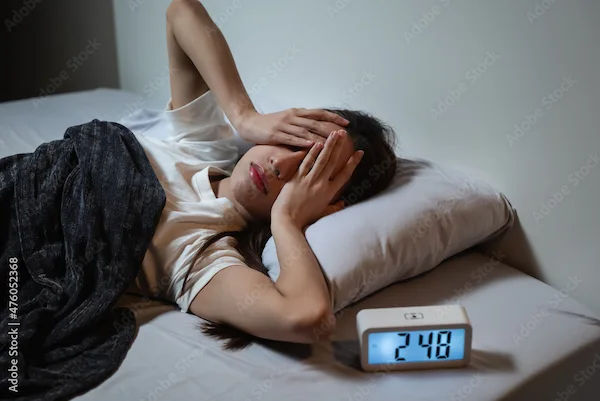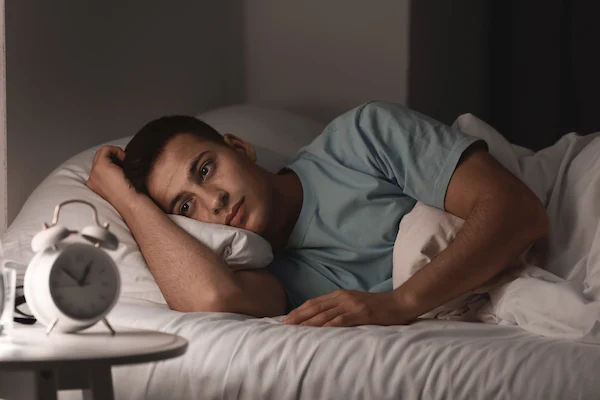Safe Dosage Sleeping Pills: What You Need To Know
Learn about the safe dosage for sleeping pills, including important guidelines and considerations to ensure effective and safe use. Find out what you need to know before taking sleeping pills.

Written by Dr.Sonia Bhatt
Last updated on 3rd Jul, 2025

Introduction
Getting enough sleep is crucial for overall health and well-being. However, many people struggle with falling or staying asleep due to stress, anxiety, insomnia, or other health conditions. In such cases, sleeping pills may seem like a quick fix. But it's important to remember that they are not a long-term solution. More importantly, using sleeping pills safely is essential to avoid potential side effects, dependency, and other health risks.
The key to using sleeping pills safely is understanding the proper dosage. Whether you're using over-the-counter (OTC) medications, prescription drugs, or natural supplements, knowing the right dosage for your specific needs and health condition is vital. This article will cover everything you need to know about the safe dosage of sleeping pills, including the different types, factors that influence dosage, risks of incorrect dosages, and tips for safe use.
Types of Sleeping Pills and Their Safe Dosages
Sleeping pills, also known as sedative-hypnotics, help individuals fall asleep, stay asleep, or both. They are often used for short-term relief from insomnia or other sleep disorders. These medications can fall into three main categories: prescription drugs, OTC options, and natural supplements. While they can be effective, it’s essential to use them with caution to avoid potential adverse effects or dependency.
1. Over-the-Counter (OTC) Sleep Aids
OTC sleep aids are available without a prescription and are typically used for temporary sleep problems or as a short-term solution. These medications are generally considered less potent than prescription drugs but still require responsible use. The most common OTC sleeping pills contain antihistamines, which induce drowsiness, and melatonin, a natural hormone that helps regulate the sleep-wake cycle.
a) Safe Dosage for OTC Sleep Aids
Diphenhydramine (e.g., Benadryl): Diphenhydramine is an antihistamine commonly used as a sleep aid. The usual adult dosage is 25–50 mg, taken 30 minutes before bedtime. It’s essential not to exceed 50 mg per night, as higher doses can increase the risk of next-day grogginess, memory impairment, and dizziness. People over the age of 65 should be especially cautious, as the sedative effects may be stronger, and side effects like confusion or difficulty urinating are more common.
Doxylamine (e.g., Unisom): Doxylamine is another sedating antihistamine. The standard dose is 25 mg, taken about 30 minutes before bedtime. This dosage should not be exceeded, as higher amounts could increase the risk of side effects, including dry mouth, blurred vision, or difficulty thinking clearly.
Melatonin: Melatonin is a hormone naturally produced by the body to regulate the sleep-wake cycle. When used as a supplement, it can be helpful for adjusting to new time zones (jet lag) or managing shift work. The typical starting dose ranges from 0.5 to 3 mg, taken 30 minutes to 1 hour before bedtime. While melatonin is generally considered safe, higher doses—especially those over 5 mg—might disrupt your body’s natural circadian rhythm or cause side effects like headaches, dizziness, or nausea.
b) Important Considerations for OTC Sleep Aids
OTC sleep aids should not be used for more than 2-3 weeks at a time unless advised by a doctor. Long-term use can lead to tolerance, meaning the same dose may no longer be effective, and dependency, where you may feel unable to sleep without the aid of the medication.
2. Prescription Sleep Medications
Prescription sleep medications are typically stronger and may be recommended for people with more persistent sleep problems or diagnosed sleep disorders, such as insomnia. These medications often include benzodiazepines, non-benzodiazepine sleep aids, and orexin receptor antagonists. Because of their potency and potential side effects, prescription sleeping pills require careful dosage management and should only be taken as directed by a healthcare provider.
a) Safe Dosage for Prescription Sleep Medications
Benzodiazepines (e.g., Diazepam, Lorazepam)Benzodiazepines are often prescribed for short-term insomnia or anxiety. They work by depressing the central nervous system to promote relaxation and sleep. The recommended doses for common benzodiazepines are:
Diazepam (Valium): A typical dose for insomnia or anxiety is 2-10 mg before bedtime. It’s important not to exceed 10 mg per day, as higher doses can lead to extreme drowsiness, difficulty breathing, and memory issues.
Lorazepam (Ativan): A typical dose for insomnia is 1-2 mg, taken before bed. Long-term use of benzodiazepines can lead to tolerance, dependence, and withdrawal symptoms, so they are generally recommended for short-term use only.
Non-benzodiazepine Sleep Aids (e.g., Ambien, Lunesta):Non-benzodiazepine sleep aids are designed to be less addictive than benzodiazepines but still potent. Some examples include zolpidem (Ambien) and eszopiclone (Lunesta). The typical dosage for these medications is:
Ambien (Zolpidem): The recommended dose is 5 mg for women and 5-10 mg for men, taken immediately before bed. If you wake up during the night, avoid getting out of bed, as Ambien can cause amnesia or sleepwalking. Do not exceed 10 mg per night.
Lunesta (Eszopiclone): The starting dose is 1 mg for adults, taken just before bedtime. The dose may be increased up to 3 mg if necessary. Higher doses may cause next-day drowsiness or impaired memory.
Orexin Receptor Antagonists (e.g., Belsomra)Orexin receptor antagonists, such as suvorexant (Belsomra), help promote sleep by blocking the orexin neurotransmitter, which promotes wakefulness. The recommended starting dose is 10 mg, taken before bed. The dose can be increased up to 20 mg if needed, but higher doses may increase the risk of side effects like drowsiness the following day.
b) Important Considerations for Prescription Sleep Medications
Prescription sleep aids should always be taken exactly as prescribed. Never adjust your dosage or take more than the recommended amount. Due to the potential for dependence, these medications should typically only be used for short-term or intermittent sleep disturbances. Misuse or overuse of prescription sleep medications can lead to serious side effects, including memory problems, confusion, and, in extreme cases, overdose.
3. Natural Sleep Aids
Many people seek natural sleep aids as an alternative to prescription or OTC medications. These products often have fewer side effects and may help promote relaxation without the risks associated with pharmaceutical drugs. Common natural sleep aids include valerian root, chamomile, and lavender.
a) Safe Dosage for Natural Sleep Aids
Valerian Root: Valerian root is often used to alleviate insomnia and anxiety. The typical dosage is between 400-900 mg, taken 30 minutes to two hours before bedtime. While valerian root is generally safe, it can interact with other medications, especially sedatives, so it’s important to consult with a healthcare provider before use.
Chamomile: Chamomile is commonly consumed as a tea, but it can also be found in supplement form. A typical dose is 1-2 grams of dried chamomile, or 1-2 cups of chamomile tea, taken before bed. It’s generally considered safe for short-term use, but overuse can cause gastrointestinal issues in some individuals.
Lavender: Lavender is often used in essential oil form, either through aromatherapy or topical application. For sleep, it’s typically recommended to use 2-3 drops of lavender oil in a diffuser or to apply it to a pillow. Lavender oil can also be taken in capsule form, typically 80 mg before bedtime.
b) Important Considerations for Natural Sleep Aids
Even though natural sleep aids are generally considered safe, they can still interact with other medications or cause side effects, especially if taken in excess. Always consult with a healthcare provider before starting any new supplement, particularly if you have existing health conditions or are taking other medications.
Conclusion
While sleeping pills can be effective for short-term use, relying on them long-term may come with risks that impact both physical and mental health. Whether you are using OTC medications, prescription drugs, or natural sleep aids, it is important to understand the recommended dosage, potential side effects, and risks involved. Always talk to your doctor or healthcare provider before using sleeping pills, especially if you have existing health conditions or take other medications. You can improve your sleep quality and overall well-being by using sleeping pills responsibly and following recommended dosage guidelines.
Consult Top Sleep Medicine Specialist
Consult Top Sleep Medicine Specialist

Dr. Shiba Kalyan Biswal
Pulmonology Respiratory Medicine Specialist
18 Years • MBBS,MD,DM(AIIMS Delhi)
Gurugram
APOLLO SUGAR CLINICS GURUGRAM, Gurugram

Dr. Suresh G
General Physician/ Internal Medicine Specialist
25 Years • MBBS, MD
Bangalore
Apollo Clinic Bellandur, Bangalore
(225+ Patients)

Dr. Arjun Ramaswamy
Pulmonology Respiratory Medicine Specialist
9 Years • MD (RESPIRATORY MEDICINE), DM (PULMONARY MEDICINE, CRITICAL CARE AND SLEEP MEDICINE)
Mumbai
Apollo Hospitals CBD Belapur, Mumbai
(50+ Patients)
Dr Srinivas Rajagopala
Pulmonology Respiratory Medicine Specialist
20 Years • MBBS, MD (Int Med), DM (Pul & Crit Care), Fellowship in Lung Transplantation (Toronto)
Chennai
Apollo Cancer Speciality Hospital, Teynampet, Chennai

Dr. M S Kanwar
Respiratory Medicine/Lungs Transplants
47 Years • MBBS, MD, DNB , MNAMS, FPGC (Austria), FCCP (USA), FAMS
Delhi
Apollo Hospitals Indraprastha, Delhi
(75+ Patients)




